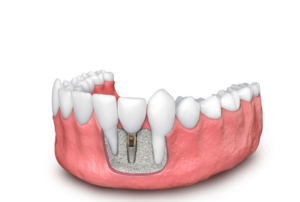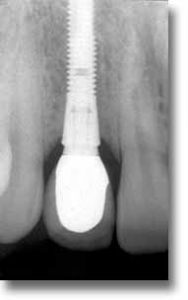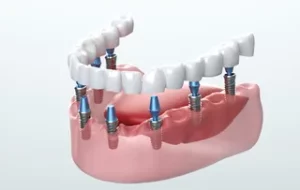
If you’ve lost your teeth, dental implants are your best, more permanent option that serves you for a lifetime. However, they involve the services of skilled dental professionals and state-of-the-art technology, and this means that they are not cheap.
What’s more, dental implants are not fully covered by a majority of traditional dental insurance and cost in the thousands. Dental financing options can help make dental implants more affordable by breaking the costs into monthly payments. In this post, we will discuss various options you can use to finance dental implants. Dental implants Rockville MD can help make this process more accessible and ease the financial burden associated with this long-term dental solution.
Understanding Dental Implant Costs
When considering dental implants, it’s crucial to understand the various costs involved. Dental implant costs can vary widely based on several factors, including the type of implant, the location of the implant, and the complexity of the procedure. By understanding these factors, you can make a more informed decision about your treatment options.
Factors Affecting Dental Implant Costs
Several factors can influence the cost of dental implants:
- The Type of Implant: Different materials, such as titanium or ceramic, can affect the price. Titanium implants are commonly used and may be more affordable than ceramic options.
- The Location of the Implant: Implants placed in the front of the mouth often require more precision and may be more expensive than those placed in the back.
- The Complexity of the Procedure: More complex procedures, such as those requiring bone grafting or sinus lifts, can increase the overall cost.
- The Experience and Qualifications of the Dentist or Oral Surgeon: Highly experienced and qualified professionals may charge higher fees for their expertise.
- The Location of the Dental Practice: Dental practices in urban areas may have higher operating costs, which can be reflected in their fees compared to those in rural areas.
Average Cost of Dental Implants
On average, the cost of dental implants can range from $1,000 to $5,000 per tooth. However, the total cost of the procedure can be higher due to additional expenses such as:
- Consultation Fees: Initial consultations to assess your dental health and discuss treatment options.
- X-rays and Imaging: Necessary imaging to plan the implant placement accurately.
- Anesthesia and Sedation: Costs associated with ensuring your comfort during the procedure.
- Follow-up Appointments: Post-surgery check-ups to monitor healing and progress.
It’s essential to consult with a dentist or oral surgeon to get a more accurate estimate of the costs involved in your specific case.
Dental Insurance and Coverage
Dental insurance can be a valuable resource in helping to cover some of the costs associated with dental implants. However, the extent of coverage can vary significantly depending on your insurance provider and policy.
Does Dental Insurance Cover Dental Implants?
Some dental insurance plans may cover a portion of the cost of dental implants, but it’s important to check with your insurance provider to understand the specifics of your coverage. Here are some common scenarios:
- Percentage of the Total Cost: Some plans may cover a percentage of the overall cost of the dental implant procedure.
- Fixed Amount per Tooth: Other plans might offer a fixed amount of coverage per tooth.
- Maximum Amount per Year: There may be an annual maximum limit on the amount the insurance will cover for dental procedures.
However, some plans may not cover dental implants at all or may have specific requirements or limitations, such as:
- Waiting Period: A period you must wait before the coverage for dental implants becomes effective.
- Pre-approval Requirements: A dental exam or X-rays may be required before the insurance company approves coverage.
- Limit on Number of Implants: Some policies may limit the number of implants covered per year.
It’s crucial to review your insurance policy carefully and ask questions to ensure you understand what is covered and what is not. This will help you plan your finances better and avoid unexpected expenses.
By understanding your dental insurance coverage and exploring various financing options, you can make dental implants more affordable and achieve the smile you deserve.
Financing Dental Implants
There are various dental implant financing options that allow you to fund your treatment. Depending on the type of treatment (single dental implant or whole mouth implants) and the number of implants you need you will dictate where you want to look for financing. If you are concerned about how much dental implants cost then you should meet with a dentist to find out what your treatment will cost.
Payment Through Loans
Getting a loan can be difficult, especially if you have a bad credit history or no credit history at all. However, dental loans are one of the options available for financing dental implants. There are various options you can choose from depending on your credit history as shown below:
Secured and Unsecured Personal Loans
It is easier to qualify for a secured loan irrespective of your credit history. But, you must put your property; including a house or a car, as collateral for the loan. This means that the property can be repossessed by the lender if you fail to pay the loan.
If you have a good credit history, you can go for an unsecured loan, also known as a personal loan. Here, there is no collateral but your lender can engage a collection agency to recover the money if you fail to pay the loan.
Care Credit
Care Credit operates in the same way as a credit card. It gives you the opportunity to start the dental implant treatment immediately, and then finance it with affordable monthly payments.
There are two Care Credit options. First, there is the ‘No Interest Payment Plan‘ that covers 3, 6, and 12 months interest free plan. As the name suggests, you don’t pay any interest as long as you pay the balance within the specified period. 90% of our implant patients choose this option.
Since the dental implant procedure is basically two phases, the financing can be broken down into two equal amounts. The first phase or the surgical phase is about half of the treatment cost and can be financed under the no interest payment plan. The second phase or the restorative phase, where we make your teeth, can be started before the first phase is paid off. One can finance the second step of implant treatment under the no interest plan again, thereby reducing your overall monthly payments.
Second, there is the ‘Extended Payment Plan‘ that covers 24, 36, and 48 months. For any procedure above $1500, you are required to pay an interest rate as low as 12.96%. For a dental implant operation costing $1500, the amount you pay monthly can be as low as $41.
Lending Club
This is a firm that helps individuals to pay for their medical or dental procedures. Since its aim is to finance medical bills, their approval rates are quite high and you can get up to $50, 000, which is enough to cover all on 4 dental implant financing. For more information on their payment plans, visit them online or inquire at your dental implant consultation appointment.
Dental Implant Financing Through a Payment Plan
Most dental implant centers are flexible when it comes to financing dental implants. Payment plans can help manage the costs associated with dental implant surgery. For example, most of them have in-house payment plans that allow you to make monthly payments. By distributing the pay across a number of months, you therefore have more time to source for the funds, while also receiving implant treatment. Usually a valid credit card and drivers license are required to apply payments on a specific day of the month. Payments start at $150 per month.
Payment plans can also be handled by a third party, for example a dental insurance policy. These types of payment accommodate monthly payments and are ideal for persons with a bad credit history and on a tight budget. The only limitation is that you must make these payments prior to the dental operation.
Dental Implant Financing Using a Flexible Spending Account (FSA)
If you are an employee and your employer offers an FSA plan, you can deposit up to $2,750 of your gross income into a Flexible Spending Account (FSA) for the year. You can use these funds to cover uninsured medical and dental expenses tax free, including dental implant operations.
A health savings account (HSA) is another option for managing dental expenses, offering tax advantages similar to an FSA.
One of the merits of using the FSA to finance dental implants is that it is tax-free for the patient. Your employer deducts the amount from your paycheck before any taxes, which means that you will owe fewer taxes at the end of the year.
When paying for the dental implants, you can choose to write a check or use the FSA debit card provided by the insurance company provider.
Note: You should confirm with your insurance company if your FSA covers dental care procedures. Most insurance companies do cover procedures that are cosmetic, and dental implants are in that category. Others consider dental implants as a necessity, and hence will pay for them.
The Bottom Line
There are various ‘dental implant financing near me’ options, even if you are operating on a tight budget and have bad credit. Therefore, if you have lost your teeth, don’t hesitate to seek help from a trusted dental implant office in Rockville MD, like Rockville Dental Arts.
Remember, a dental implant can significantly improve your smile and make you even more self-confident.








What is the price if I have to get every tooth fixed in my mouth with a implant and all on 4 cost 50,000 dollars why are they different prices.
I’m sure I have bad credit but I really need myupper teeth done.Im unemployed but need this procedure done because I’m slowly starving to death.Help me.
You would need to come in for a consultation to see if you are even a candidate 301-424-2030
I need implants I live in zip code 89147
I have crowns and a bridge a Maryland bridge. It doesn’t come out and right now. I have an infection inside of those teeth I need help.
Hi Patti, You should google search for a dentist and find one with 4.8 stars!
Hello,
I am an 80 year old Vietnam Veteran in Rockville MD in need of upper and lower dentures or implants. Since my dental needs are not service-connected I don’t quality for VA dental care. I am living off Social Security. Is there anything you can do for me?
Yes! Please come in for a free consultation… 301-424-2030